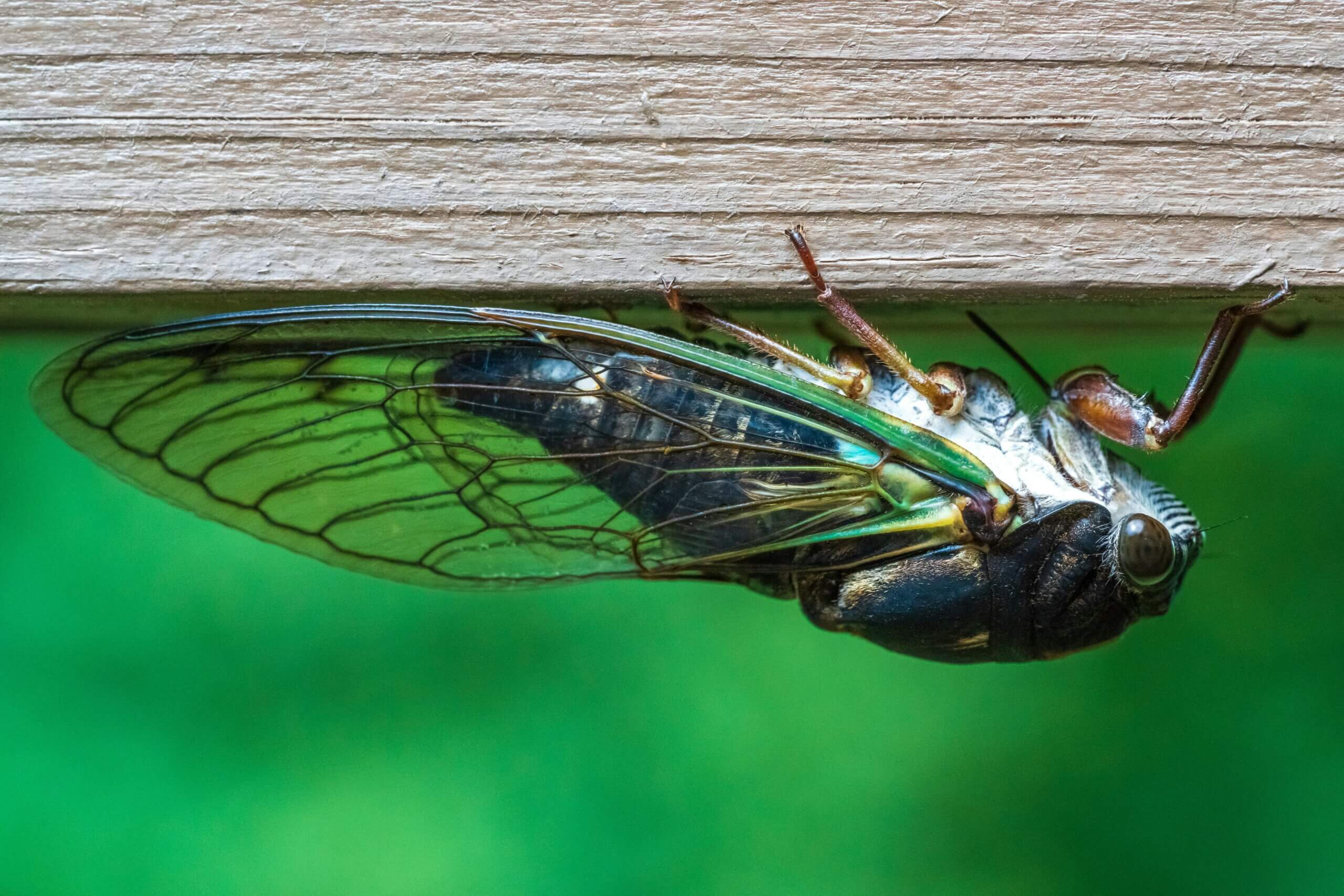
Brood X
Each insect turns a fraction on its axis, a cocooned child shifting in a half-sleep,
oblivious beyond cool mud to flames of wildfires as they streak across the hills
of Paradise.
Cicada nymphs sip from pine roots, exoskeletons darkening into an amber crust.
A thousand miles away, petroleum may seep into an ocean with suffocating
black tar, as blindly, these creatures suckle-on.
And as new plagues spore from lung to human lung, the brood unblighted,
exceeds its burial-nest. At sixty-four degrees warmed soil triggers the unfurl
of tiny legs, all set to excavate, to hatch through earth’s surface,
climb the trees, hang empty jackets sticky against bark, leathers shrugged
from young shoulders, eager for a dance. Now birdsong-only days
are re-tuned to pulsing castanets, the singing tymbal of males in search of mates.
Oil-spill-effects glisten across their fervent wings on boughs of Dogwood, Myrtle,
Oak. And as the frenzied jig subsides, all eggs are laid, red eyes begin to cloud,
and two-inch bodies fall to join already molted shells, heaped, half-chewed
caramels in long grass releasing sap back into soil. The earth, still peppered
with thumb-sized chimney holes, catches fresh eggs, duly incubates.
And as we imagine the cicada brood of twenty-thirty-eight, we already know
our planet-razing will skew their inner clocks. A five-million-year recycling
success, the journey down past rocks, and streaks of chalk, bone shards from coyote,
fox and wolf, across landscapes of displaced Piscataway, Nacotchtank.
And on this season's final night, one last cicada can just be heard
atop the tallest White Oak, sending out slow calls for his still absent mate
a whisper now, like time unwinding.